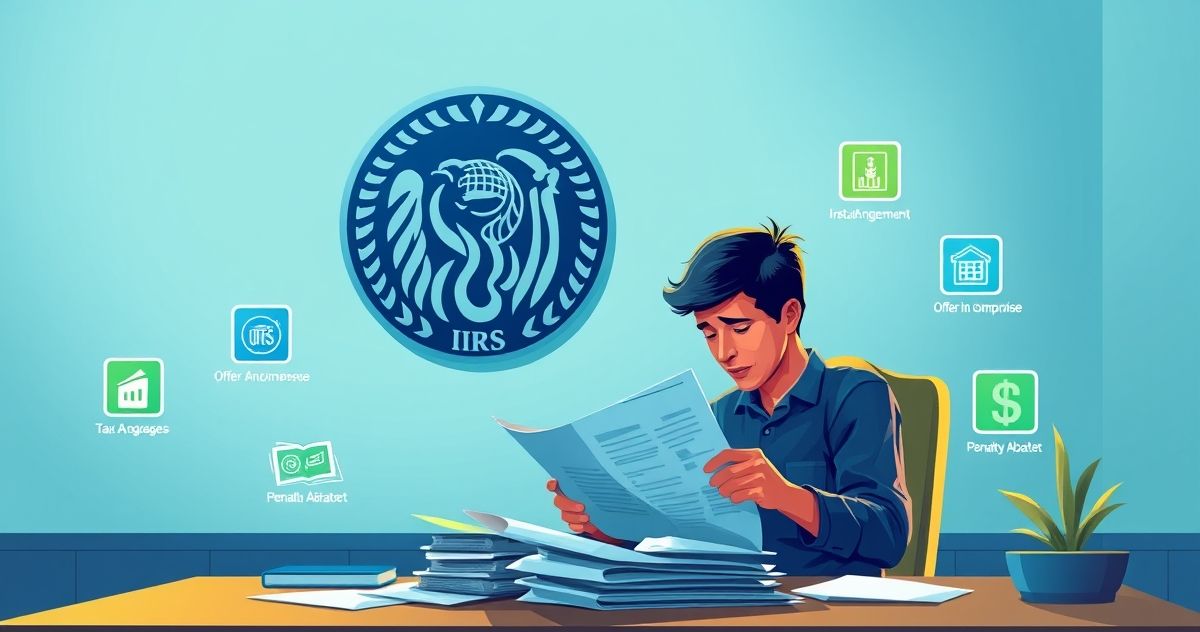Understanding IRS Debt Management
IRS Debt Management is an essential component of financial stewardship for individuals and businesses dealing with outstanding tax liabilities. This comprehensive approach is designed to guide taxpayers in resolving their tax debts in a manner that is both manageable and compliant with federal tax laws. The primary purpose of IRS Debt Management is to foster a systematic resolution of overdue taxes, preventing the accumulation of additional penalties and interest while simultaneously providing taxpayers with viable repayment strategies.
Key Features and Components
The IRS offers several programs and options to assist taxpayers in managing tax debt:
- Installment Agreements: This allows taxpayers to pay off their tax debt over time through monthly payments. Different types of installment agreements cater to various financial situations, including short-term and long-term plans.
- Offer in Compromise (OIC): The OIC program enables taxpayers to settle tax debts for less than the full amount owed if they meet specific eligibility criteria, such as demonstrating financial hardship.
- Currently Not Collectible (CNC) Status: Taxpayers experiencing significant financial distress may temporarily suspend collection efforts by the IRS by proving their inability to pay both their tax debt and essential living expenses.
- Penalty Abatement: The IRS may concede penalties if a taxpayer demonstrates reasonable cause for non-compliance or if they qualify for the first-time penalty abatement program.
Filing and Compliance Requirements
To engage effectively with IRS Debt Management strategies, taxpayers must comply with specific filing requirements:
- All required tax returns should be filed. This includes ensuring that any past-due returns are submitted, as the IRS typically insists on compliance before negotiating on payment solutions.
- Taxpayers must be capable of demonstrating their financial situation, often necessitating detailed budget documentation and proof of income and expenses.
Active compliance with these requirements facilitates smoother negotiations and increases the likelihood of acceptance into an IRS debt program.
Penalties and Consequences for Non-Compliance
Failure to manage IRS debt can lead to serious financial repercussions. Initially, unpaid tax debts accrue interest and penalties, significantly increasing the overall amount owed. If a taxpayer fails to address their tax obligations, the IRS may enforce collections, utilizing liens or levies to seize bank accounts, wages, and other assets. Such actions can severely affect a taxpayer’s credit standing and financial freedom.
Furthermore, persistent non-compliance can trigger tax audits, where the IRS scrutinizes a taxpayer’s financial dealings closely. Engaging in IRS Debt Management can help mitigate these risks, allowing individuals and businesses to address their tax responsibilities proactively.
Significance in Tax Resolution and Financial Compliance
The importance of IRS Debt Management extends beyond mere compliance; it is a critical component of overall financial health and stability. Effective debt management assists in reducing the burdens of tax-related stress by offering structured solutions, thus preventing the spiraling of debts due to accumulated penalties and interest.
For many taxpayers, navigating complex financial landscapes alone can be overwhelming. IRS Debt Management programs provide clarity and direction, empowering taxpayers to settle their obligations while working towards financial recovery. This structured approach ensures adherence to tax obligations, thereby avoiding future tax complications.
In conclusion, IRS Debt Management is not simply about rectifying past oversights; it is about creating a sustainable pathway towards financial compliance and security. By utilizing available IRS programs and adhering to necessary compliance standards, taxpayers can effectively manage and eliminate tax debts, fostering a healthier financial future.

